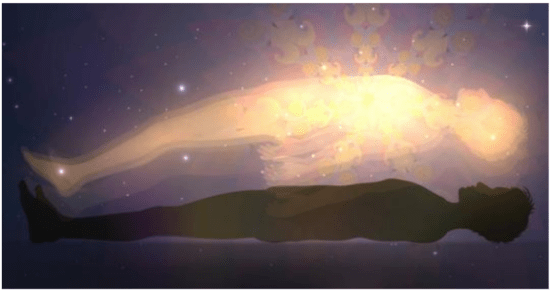You might be going through an early or premature menopause if you’re under 45 and experiencing these symptoms.
Menopause is a condition that affects half of the population at middle age and signals the end of the reproductive years.
“Menopause is a natural process that occurs in women when their ovaries stop producing eggs, causing a permanent cessation of menstrual periods,” explained Dr. Thomas Enyart, an OB-GYN with Orlando Health Physician Associates in Florida.
Dr. Stephanie Faubion, director of the Mayo Clinic Center for Women’s Health and medical director for the North American Menopause Society, claims that this occurs for the majority of people at an average age of 52. Menopause generally occurs between the ages of 45 and older.

However, there are instances where menopause begins earlier than expected, and that can occasionally be problematic. Faubion claims that 5% to 7% of women have early menopause, while 1% to 2% of women experience so-called premature menopause at even younger ages.
Experts discussed what you should know about entering menopause early in interviews with HuffPost.
How does early menopause work?
Early menopause, as the term implies, is when menopause starts before the natural age. It’s when menopause starts for women under 45, according to Faubion. She pointed out that there is no distinction between early menopause and menopause in general.
It is distinct from perimenopause, which describes the few months or years before to the onset of menopause. People may begin noticing changes and irregularities in their menstrual cycle (along with a few other problems) during the perimenopause, which lasts until menopause occurs.
What symptoms indicate an early menopause?
Enyart noted that emotional anguish, worry, and sadness might also manifest. “The signs and symptoms of early menopause are similar to those of natural menopause, including hot flashes, night sweats, vaginal dryness, mood changes, and difficulty sleeping,” she stated.
According to Dr. Leah Millheiser, a clinical professor of obstetrics and gynecology at Stanford Medicine in California and the chief medical officer at telemedicine company Evernow, the difference is simply the age at which these symptoms begin, which is under 45 for early menopause and after 45 for “regular” menopause.
Additionally, if you are under 45 and not pregnant and your period stops for at least three months, this is a symptom of early menopause and needs to be looked up by a doctor, according to Faubion.
Since some women who experience early menopause don’t exhibit the traditional signs of night sweats and hot flashes, she continued, it’s crucial to take note of a missed period. And without these signs, “there’s not always a huge drive for them to get into a doctor’s office to see what’s going on, but they’re at risk in terms of bone, brain, and heart [health] if they don’t use hormone therapy,” she added.
Enyart continued, “They might also be at a higher risk of getting some cancers, such breast and ovarian cancer.
Who is susceptible to an early menopause?
According to Faubion, “most of the time, we don’t know the cause” of early menopause. “Therefore, it’s difficult to determine who is at risk.”
Even while it could appear random, certain people are more likely than others to experience it. According to Millheiser, ovary excision and chemotherapy or radiation therapy both cause menopause in certain people. Your risk can also increase if you have a family history of early menopause, such as your mother, grandmother, or sister.
There are a few additional things to consider.
According to Millheiser, women who began having periods before the age of 11 are more likely to experience an early menopause.
Additionally, she noted that smokers are more likely to go through menopause on average two years earlier than non-smokers. Faubion pointed out that this two-year differential does not always imply that menopause would start before age 45.
Additionally, according to Faubion, several autoimmune conditions and genetic abnormalities might cause early menopause.
Premature menopause is not the same as early menopause.
Menopause that occurs before the natural age falls into two categories: early menopause and premature menopause, commonly referred to as premature ovarian insufficiency.
Menopause strikes those under the age of 40 at this time. It is “critical that those women receive hormone therapy up until the natural age of menopause,” according to Faubion, if they are experiencing premature menopause.
“These women… are at increased risk for heart disease, dementia, osteoporosis, mood disorders, sexual dysfunction, and early mortality,” she continued.
You can decrease these health risks by using hormone therapy up until the time of menopause, according to Faubion.
Who is susceptible to an early menopause?
Unlike early menopause, which is just “oh, I went through menopause earlier than most,” premature ovarian insufficiency usually has a cause, according to Millheiser.
According to her, it might be chromosomal or result from a medical problem, a family history, an autoimmune issue, or both. You may be at danger if you have rheumatoid arthritis or hypothyroidism, according to Millheiser.
In addition, Turner syndrome patients and those with chronic fatigue syndrome have a higher risk of going through an early menopause, according to the expert.
“You should really be speaking to your clinician and trying to identify the cause if you’re going through premature ovarian insufficiency,” Millheiser continued.

What symptoms indicate an early menopause?
You should consult a doctor if your period stops unexpectedly when you’re under 40 and you’re not pregnant. stated Faubion.
“If a woman is not being hormonally manipulated — so, not on a birth control pill, doesn’t have an IUD [intrauterine device] in — and she’s missing periods, that’s not normal,” the expert added.
Premature menopause might be indicated by night sweats, hot flashes, and other symptoms of menopause. Some people experience no symptoms at all, just like with early menopause, Faubion continued.
There are family planning and fertility difficulties that should be taken into consideration for persons under the age of 40. The preservation of bone density is one thing that is crucial, she noted.
The use of hormone treatment by those women up till menopause occurs naturally is crucial. Whether they are exhibiting symptoms or not is irrelevant.
If you believe you are in an early or premature menopause, follow these instructions.
A person should consult a doctor if they believe they are going through an early or premature menopause.
The important thing, according to Faubion, is that they observe a knowledgeable person. She said that you can search for a practitioner that specializes in menopause care at menopause.org. This may lessen the chance of a misdiagnosis, which some patients experience.
“A lot of clinicians don’t [understand menopause],” remarked Millheiser. “And that’s not because they didn’t want to learn about it; it’s because the medical community in the United States has failed to educate clinicians about menopause — what it is, how to treat it,” the author continues.
In her words, “as a menopause practitioner at a major academic center, I see women who come in and say things like ‘you are the fourth doctor I have seen for my menopause concerns’” — and these are frequently patients with typical menopause symptoms and no substantial comorbidities.
That is a typical story, according to Millheiser.
The correct medical practitioner can help you connect with other women who are experiencing menopause earlier than the natural age, making you feel less alone. Starting treatment is crucial.




